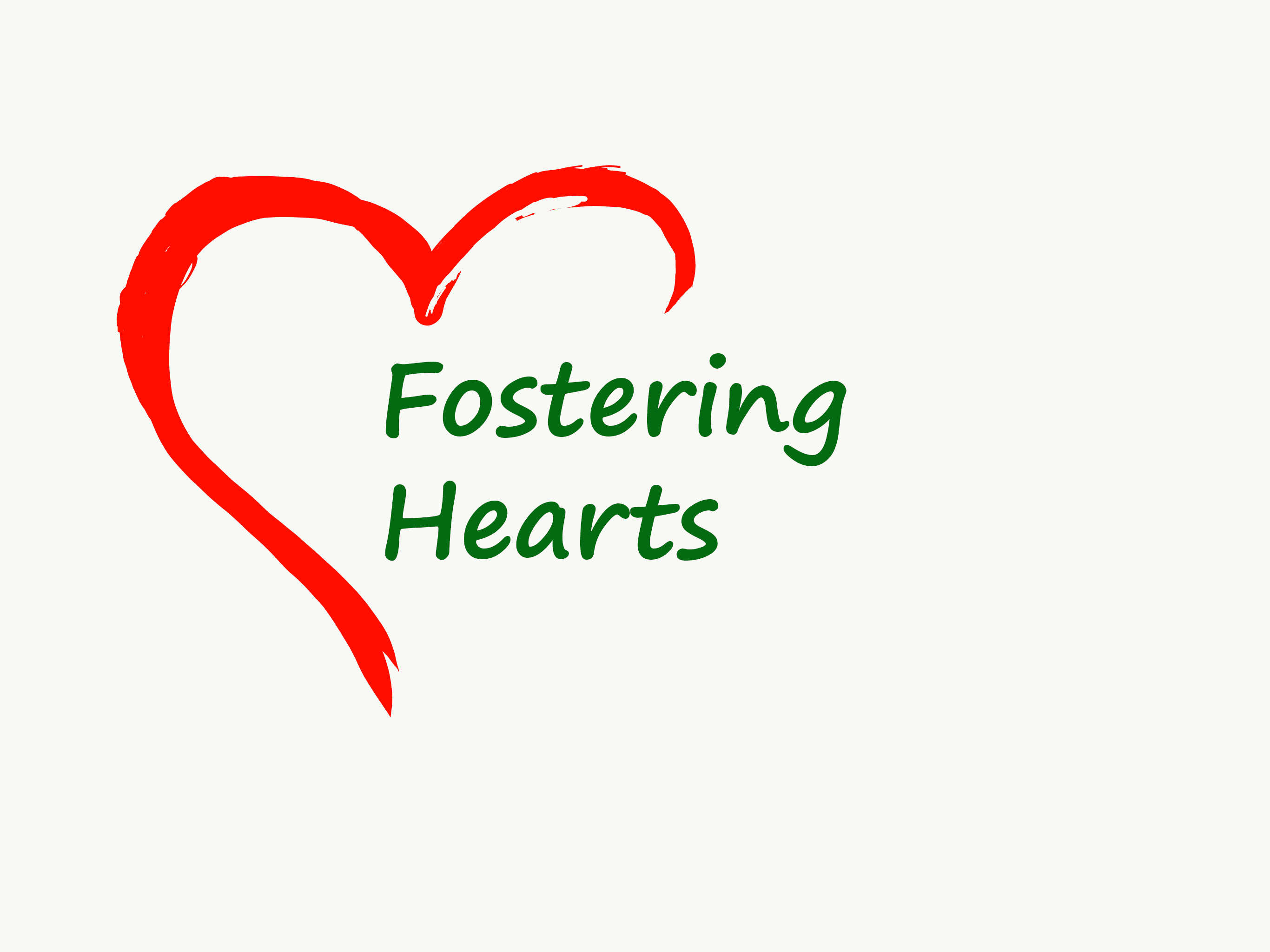They’re not naughty, they’re hurting:
Foster children often come with deep emotional wounds, and their behaviours are usually a reflection of the pain, trauma, and instability they have experienced in their lives, rather than an indication of “bad” behaviour. Understanding that a child’s actions are rooted in their past struggles can help foster parents approach difficult moments with empathy and compassion.
When foster children act out, it’s not because they’re “naughty” or “rebellious”; they’re often trying to cope with overwhelming emotions like fear, anxiety, grief, and confusion. These children have faced situations where their safety, stability, and trust in others have been shattered. They may not know how to express their feelings in a healthy way or may not even trust that the adults around them will protect them or stay in their lives.
Here are a few key points to remember when dealing with challenging behaviours in foster children:
1. Trauma-Informed Parenting
Many foster children have experienced trauma, which can manifest in behaviours like withdrawal, aggression, or defiance. By understanding trauma and how it affects a child’s brain development and emotional regulation, foster parents can respond more effectively. Trauma-informed parenting emphasizes patience, understanding, and creating a safe environment where the child feels heard and supported.
2. Behaviour Is a Form of Communication
Children who have been through trauma may not have the tools to express their emotions in a healthy way. Acting out or withdrawing can be a child’s way of communicating that they feel unsafe, scared, or out of control. Recognizing this can help foster parents respond with care and without judgment.
3. Consistency and Boundaries
While foster children may struggle with trusting others and feel unsettled by the lack of control in their lives, maintaining a stable, predictable routine can help them feel more secure. Having clear, loving boundaries is important, but they should be implemented with empathy, giving the child the space to process their emotions in a healthy way.
4. Building Trust Takes Time
Trust doesn’t happen overnight, especially for children who have experienced multiple disruptions. Foster children may initially push boundaries or challenge authority as they test whether or not their new caregivers can be trusted to stay. It’s important to be patient, show consistency, and avoid taking their behaviours personally. Over time, this consistent care will help them build trust.
5. Healing Is a Process
Healing from trauma is a long-term process. Foster children may not “bounce back” right away or ever completely forget their painful past experiences, but with love, support, and care, they can begin to heal. Foster parents can play a key role in helping the child process their feelings, but it’s important to be realistic and recognize that some behaviours may persist as the child works through their emotional wounds.
6. Seeking Professional Support
Sometimes, foster children need additional support from counsellors, therapists, or other professionals trained in trauma. Therapy can be essential in helping them understand and process their experiences. Foster parents should not hesitate to seek out these resources and make use of the support available.
Ultimately, it’s crucial to see the child as a whole person who needs love, care, and understanding—not just someone with difficult behaviours. Recognising that they are hurting can make all the difference in how foster parents approach challenges. It also encourages a more compassionate, patient, and loving response, which helps the child feel more secure and supported as they heal.
——————————————————————————————–
Common Challenges Foster Carers May Encounter:
Fostering can be a deeply rewarding experience, but it also comes with a set of unique challenges. For those who choose to open their hearts and homes to children in need, the road can be filled with hurdles that require patience, understanding, and adaptability. If you’re considering fostering, it’s important to be aware of the challenges you might face so you can be better prepared to navigate them. Here are some of the common difficulties foster carers may encounter:
1. Emotional and Behavioural Issues
Many children in foster care come from traumatic backgrounds, including neglect, abuse, or the disruption of their families. As a result, they may have emotional and behavioural challenges such as anxiety, anger, difficulty trusting others, or struggles with attachment. These issues may manifest in a variety of ways, including aggression, withdrawal, or trouble in school.
Foster carers may need to seek out therapy or other forms of professional support to help their child process these emotions. It can take time, patience, and understanding to create a sense of safety and trust.
2. Separation and Attachment Difficulties
Children in foster care have often experienced multiple disruptions in their lives. They may have been separated from their biological families, siblings, or previous foster homes. These experiences can create attachment challenges, both for the child and the foster carers. The child might resist forming connections or might be hyper-attachable, creating a complex dynamic.
Foster carers need to be patient and consistent, offering a stable, loving environment while also understanding that the child may have difficulty opening up due to their past trauma.
3. Navigating Complex Legal Systems
Foster carers often find themselves navigating a complex and often slow-moving legal system. The goal of foster care is usually reunification with the birth family, but this can involve legal meetings, court appearances, and decisions that are beyond the foster carers’ control. There may also be decisions regarding permanency, adoption, or ongoing family contact, which can create additional stress.
Foster carers may find it difficult to cope with the uncertainty, the need for flexibility, and the emotional toll of decisions made outside their control.
4. Balancing Relationships with Birth Families
In many cases, foster carers are required to maintain relationships with the child’s birth family, especially when reunification is a possibility. This can be a delicate balancing act, as foster carers must navigate their own role in the child’s life while supporting the relationship between the child and their biological family.
Emotions can run high, and foster carers may struggle with conflicting feelings of loyalty toward the child and the birth family. At the same time, they must also manage the child’s attachment to their biological family, which can shift as reunification efforts progress.
5. Parenting Children with Special Needs
Some foster children may have special physical, emotional, or developmental needs. These children may require additional resources, therapy, or medical attention, which can be challenging for foster carers to manage. Foster carers may need to work with specialists, attend therapy sessions, or navigate educational systems to ensure that the child receives the care and support they need.
The demands of caring for children with special needs can sometimes lead to burnout or feelings of being overwhelmed. It’s important for foster carers to take care of their own well-being and seek out support when needed.
6. Time Commitment
Foster care can be a significant time commitment, especially if a child has multiple appointments, therapy sessions, or educational needs. Balancing the needs of foster children with work, family life, and self-care can be challenging. Foster carers often must juggle a demanding schedule, which may leave little time for personal pursuits or relaxation.
Foster carers need to build a routine that allows for flexibility while still prioritizing the child’s needs. Time management skills are essential to ensuring that the family dynamic remains healthy and functional.
7. Dealing with Loss
Perhaps one of the most difficult aspects of fostering is the potential for loss. Foster children may eventually return to their birth families or be placed in other foster homes. The emotional toll of bonding with a child and then losing them can be devastating for foster carers. This sense of loss can lead to feelings of grief, sadness, or even guilt.
Foster carers must learn how to process and cope with these emotions while also being there for the child, who may be experiencing their own sense of loss or abandonment.
How are the challenges overcome:
Whilst it is important to acknowledge the challenges, fostering is also incredibly rewarding and you don’t do it alone. At Positive Aspirations, there is a wealth of support available to help you navigate the challenges; you will have access to 24 hour social work support, peer support via regular foster carer support groups, regular events so you can get to know other foster carers and you can enjoy fun days out with the children, support from an education consultant and our own children’s advocate, as well as a wealth of training and advice.
Conclusion
Foster caring is both challenging and deeply rewarding. It requires a lot of patience, compassion, and resilience. While the challenges can sometimes feel overwhelming, the impact that foster carers have on the lives of children in need is immeasurable. With the right support, a strong network, and a willingness to embrace the ups and downs, foster carers can make a lasting difference in the lives of children and families.




